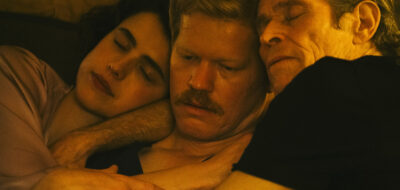Since the early years of the Catholic practice there existed a practice called “indulgence” (Latin: indulgentia). Basically, its premise was that, through certain acts, a person could reduce their punishment in the afterlife (like hell with slightly reduced hell or something). Those actions first included repetition of a certain prayers or visitation of holy places. Soon enough the practice gained a monetary aspect, though. The Church started to accept payments in exchange for indulgence; those payments, surely, went to various charities and were used to build more churches (and certainly nothing other than that). This became a main point for attack from newly-emerging protestants and also created elitism in religion, i.e the rich were now easily getting a premium licence to sin without worrying about the consequences. Thus, the practice was largely reshaped during Counter-Reformation (“counter” as a response to Protestant Reformation) and again in the 20th century.
In social psychology there is a term called “self-licensing”. It refers to a mostly subconscious act of self-satisfaction through committing a moral deed and later granting the self permission to behave immorally. An extreme example to highlight the phenomenon would be such thinking as ‘I picked up some trash from the pavement today, therefore, I will not feel guilty if I commit multiple war crimes a bit later.’ Of course, that was an exaggeration; also the whole reasoning, as written previously, happens subconsciously. A more common example from everyday life would be drinking diet coke while devouring a fat burger. I cannot imagine someone who, at some point in their life, did not do something similar. Indeed, this theory was tested by Michael Stevens (the guy from Vsauce) on his Youtube show MindField (S03 E02) and was observed to be true in the majority of instances.
This leads us to the conclusion of this article, which is the theory of my own. With psychological phenomenon on one hand and a general nature of majority of religious practices (i.e pray and thou shalt be forgiven) on the other, I would like to humbly put forth the following proposition: modern-day religions, and not only Catholic, still provide a sort of indulgence, although they do so subconsciously. ‘What do you mean?’ one might object with angered confusion, ‘religion, on the contrary, serves as a medium to propagate the importance of good deeds!’ one might continue. And to that objection I would object with a specification of the issue: it lies not in all of the ideas and principle of religious belief, but instead specifically in the symbolic acts such as prayers and visits to holy places. When we abandon theology and metaphysics for this bit, those acts serve absolutely no utilitarian purpose. But for a religious person, those deeds are as real and as moral as saving a kitten, with the difference that the receiver is not feline but divine. After the completion of such an abstraction of a good deed, subconscious phenomenon of self-licensing comes into play; a religious person unwillingly puts himself on a non-existent and unsupported by real deeds moral high ground. Thus, in a utilitarian sense, it might even be concluded that a religious person is prone to act more immorally in a situation where he is not fully involved consciously (i.e does not stop to weigh all of the pros and cons, which is most of the time). That’s it. That was the whole theory, its justification and its unfortunate consequence, the solution of which (in case the theory turns out to be true) is left for the reader.





